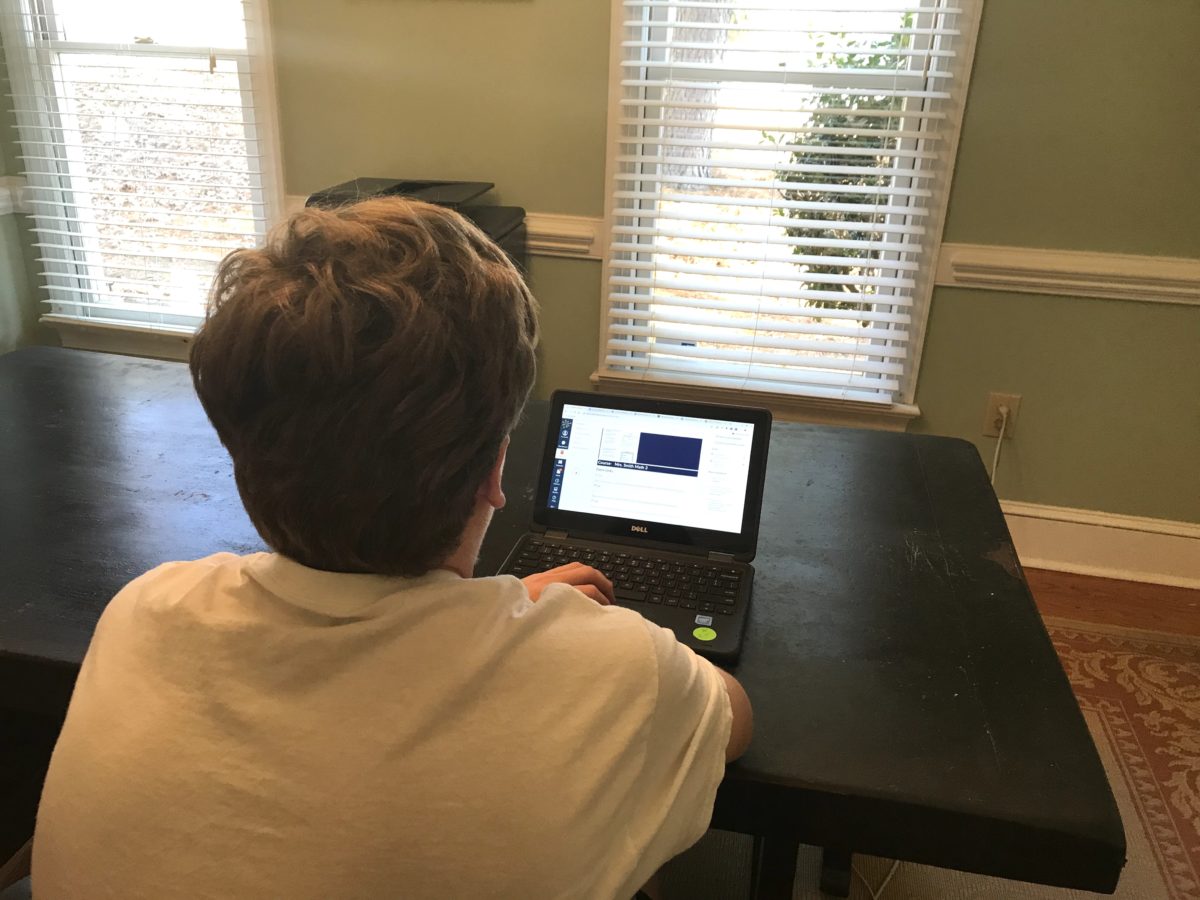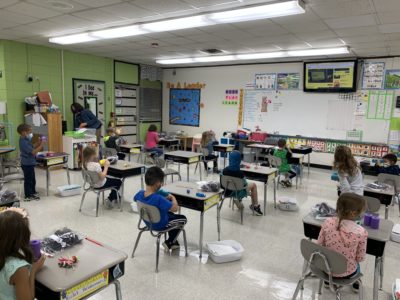

“The need for better highspeed internet connectivity was there before we got to the pandemic, but it was easy to overlook because we could hand students a textbook and a worksheet. With the pandemic, it became evident very quickly that kids in Hyde County and other rural school districts aren’t getting what everybody else is getting.”
This was the unequitable reality that Hyde County Schools Superintendent Steve Basnight and other rural North Carolina educators faced when schools closed and then reopened their doors virtually because of the pandemic in March.
In Hyde County, 65% of the student body and staff did not have reliable, useable internet access. In Halifax County, only 30-40% of students had some type of internet connection, including the data plan on their phones. Throughout the state, the Department of Public Instruction reported more than 190,000 K-12 students without internet access and/or devices at home.
As state and local leaders began acting quickly to find solutions, so did North Carolina’s business community. For more affluent urban areas with a large, diverse business presence, this was able to happen at least in some part at the local level. For many of the state’s rural communities though, their local resources were no match for the magnitude of the challenges they faced. These challenges were as varied as their geography and income levels, and they needed flexible approaches that could be individualized to fit their needs.
Halifax County Schools Superintendent Dr. Eric Cunningham says that for his students, “It’s both an affordability and connectivity issue.” The geography of the county is so spread out that there aren’t enough cell phone towers. For many families that do have access to a signal, the cost barriers of reliable connectivity are simply too steep to overcome.
A similar situation has played out in expansive Hyde County where there are only a couple of areas that have a population concentration. As Basnight describes, “Aside from that, we’re fields, farms, 30 miles of water, and an island.” With two mobile providers that serve different areas and some areas of the county that receive no cell signal at all, hot spots weren’t the all-encompassing answer that they’ve been in other school districts. This meant that multiple solutions had to be explored, each with its own set of regulations, restrictions or licensure issues.
That’s where my organization, the North Carolina Business Committee for Education (NCBCE), comes in. Our members and partnering businesses have been able to serve as a bridge between private funding and resources and the school systems that need them. NCBCE is a nonprofit with a membership made up of business leaders from across North Carolina. Because we operate out of the Office of the Governor, we are able to work in close coordination with the administration, the North Carolina Department of Public Instruction, and many public, private, and nonprofit partners from throughout the state.
In this role and in response to the remote learning challenges North Carolina was facing in the spring of 2020, we formed the Remote Learning Working Group along with Hometown Strong, Gov. Roy Cooper’s rural initiative. The group is made up of leaders from business, government, education, and nonprofits and focuses on the strategies that are critical to successful remote learning. These include connectivity solutions for students, digital literacy for families, and professional development for educators.
Halifax and Hyde counties were among the five rural pilot counties where we began our work. In each pilot county, NCBCE and Hometown Strong staff spoke with the superintendents and leaders to assess what their students and educators needed. Physical, philanthropic, and community assets specific to each county were also identified.
We then helped to match those needs with philanthropic funding from businesses such as Wells Fargo, Duke Energy, AT&T, Google, Verizon, Fidelity Investments, Dell, and Smithfield Foods. This approach is part of what Cunningham and Basnight seem to appreciate most about the Remote Learning Working Group’s work with them.
“They listened, and they came back with actionable potential responses that fit what we had told them,” said Basnight. “It wasn’t a one-size fits all. It was ‘We’ll try to attack it in nine different ways and see which one works.’” For Hyde County, some of the solutions involved creating Park and Learns where students could bike, drive or walk up to fire stations, schools and business offices in the evenings and connect to broadband signal from their parking lots.
In Halifax County, Cunningham was concerned about how to fix student devices provided by CARES Act funding that he knew were going to need repairing at some point. As a result, the school system is serving as a pilot program for the NC Student Connect Tech Team, a student help desk model which will serve as a workforce readiness program by allowing students to become certified in repairing devices. The program, which is aligned to Career and Technical Education standards, will be available to all school systems in North Carolina by January.
These are just a few of the examples of both the local impacts and far-reaching solutions achieved by the Remote Learning Working Group and our partners. Consequently, all of this work informed Cooper’s statewide NC Student Connect partnership, which is investing $40 million in private and public funds to address internet connectivity gaps that are a barrier to remote learning in rural and urban communities.
Despite this progress, the work must continue. Basnight sums it up best when he says, “We have options that are up and running now. We have more connectivity than we had, but we’re still struggling. We can’t just stop here.”
As someone who knows the strength and power of our state’s companies, I’m calling upon all of North Carolina’s businesses to respond to this struggle for rural communities in whatever way they can. This is an issue that affects us all. Our state’s future success depends on our students being able to connect now.




